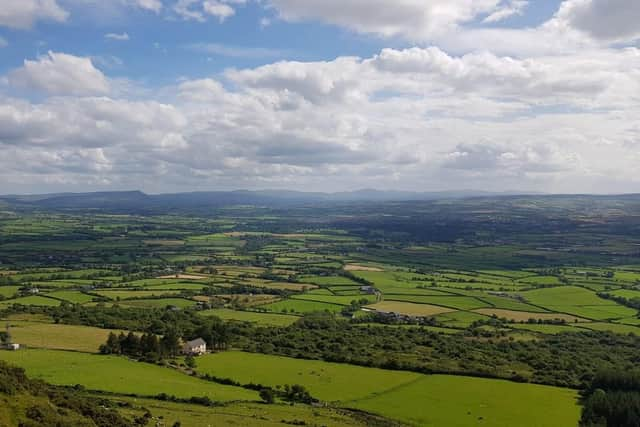The importance of COP28 for NI
and live on Freeview channel 276
As world leaders, climate experts and various organisations and businesses descend on the Middle East, the UAE presidency aims to ‘rethink, reboot, and refocus’ the climate agenda to get the world back on track to limit global warming to 1.5°C (which means halving emissions by 2030). Efforts will focus on a pragmatic energy transition, mobilising solutions for vulnerable countries, operationalising loss and damage, transforming food systems, and delivering the most inclusive COP possible.
It is hoped that COP28 will help keep alive the goal of limiting long-term global temperature rises to 1.5C. This was agreed by nearly 200 countries in Paris in 2015.
Advertisement
Advertisement
According to experts in the UN’s Intergovernmental Panel on Climate Change (IPCC), the 1.5C target is crucial to avoid the most damaging impacts of climate change. When the UK signs up to these global agreements, this filters down into national targets and policies setting the direction of travel here.


For farmers in Northern Ireland (NI), the gathering of world leaders to talk about climate change may seem irrelevant but it is important. Farming is on the frontline of climate change impacts. In NI we are not exempt and are vulnerable to extreme weather events, new pests and diseases and changing weather patterns.
Adapting and becoming more resilient farm businesses will be key. It is in all our interests to reduce emissions across all of society to address climate change and limit the impacts to the planet. However, the Ulster Farmers’ Union (UFU) has also been clear that tackling climate change must not be at the expense of reducing our ability to produce high quality, affordable food to high environmental, animal health and welfare standards.
The UFU is continually highlighting to politicians, stakeholders and the general public, that farmers are part of the solution to climate change and will help make a difference to this huge challenge. While action is needed to address emissions from agriculture, what is not acceptable is unrealistic expectations that would jeopardise the industry and threaten the future of local food production. There is no point in reducing emissions in NI to a level that would impact our ability to produce high quality food while continuing to import produce from overseas where the environmental standards are lower and emissions are higher - this is known as carbon leakage.
Advertisement
Advertisement
Beef production in Western Europe is currently 2.5 times more efficient in managing carbon emissions than the global average. Greenhouse gas emissions from beef in the UK are 52% lower than the global average while the dairy industry in NI has reduced its carbon intensity by 34% since 1990.
In a changing climate, global food availability will become a key issue. As the world population is estimated to hit 10 billion by 2050, the UN Food and Agriculture Organization (FAO) predicts that agricultural production will need to rise by an estimated 60% to meet that need with a predicted increase in 76% and 63% in meat and dairy by 2050. This will be from an ever-decreasing area of land. In NI, we now have our own Climate Change Act (NI) 2022. As the majority of our politicians dismissed and went beyond the original advice of the Climate Change Committee (CCC), this Act contains legislative targets which are largely unachievable according to many experts, with the CCC struggling to find a pathway to deliver the now legal requirement of net zero by 2050 in NI.
The relevance of these targets set in legislation, is that they will drive all other government policies across all departments including the new future agriculture support schemes. This could skew actions and budget towards the climate agenda with consequences for other schemes and environmental priorities not just in agriculture, but right across government.
The threat of livestock cuts continues to loom over us with the CCC advising that to meet the unrealistic targets supported by many MLAs, reductions of 22% in dairy cattle, 17% beef and 18% sheep, pigs and poultry are needed by 2030. The UFU believes this is short sighted and will continue to oppose forced reductions in our herd.
Advertisement
Advertisement
Within NI, there is a lot of great work taking place to reduce emissions and improve sustainability within agriculture. It is also encouraging to see the vast array of research work taking place in the UK and Ireland which will help deliver further reductions. The UFU also continues to lobby for proper recognition of methane within the accounting metrics both locally and at an international level.
If Stormont returns, there is no doubt that the decisions that will be needed to implement the new Climate Change Act, will present a very significant challenge for new Ministers with limited budgets to deliver. With that in mind, the UFU has met all the political parties to highlight the positive action already taking place within our sector and the huge challenge they have imposed on the industry. The next few years will be crucial, and the UFU will continue to fight for our farmers to ensure a balance between credible climate action and sustainable food production in the years ahead.